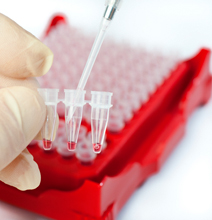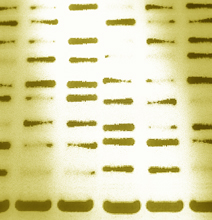Testing for HNPCC
Most HNPCC cases are linked to known inherited (so germinal/present at birth) mutations in the MLH1 or MSH2 gene.

As such, current genetic testing for the disease focuses on the MLH1, MSH2 and MSH6 genes.
Although most genetic testing can now be done using a simple blood sample, in HNPCC case the genes to test are many and complex. As a result, their sequencing (or genetic testing) is often preceded by tests on tumor samples instead of blood
These can be:
- Microsatellite instability test (MSI)
- Immunohistochemistry (IHC) tests, chich study the proteins produced by the MLH1, MSH2 and MSH6 genes
MSI and IHC tests look for changes in the somatic cells (so the non-sexual cells, in this case, tumor cells), and do not search for hereditary mutations.
Nevertheless, they gather evidence that can support (or not) the need for a genetic test, while also giving some indication of the type of mutation behind the hereditary syndrome.
A positive (MSI +)result together with a family history of colorectal cancer indicates that a more complex genetic sequencing test should be performed.
Learn more about the conditions under which these tests are applied.






